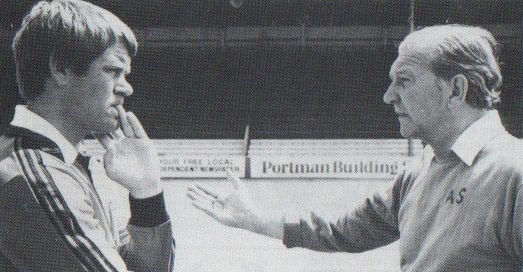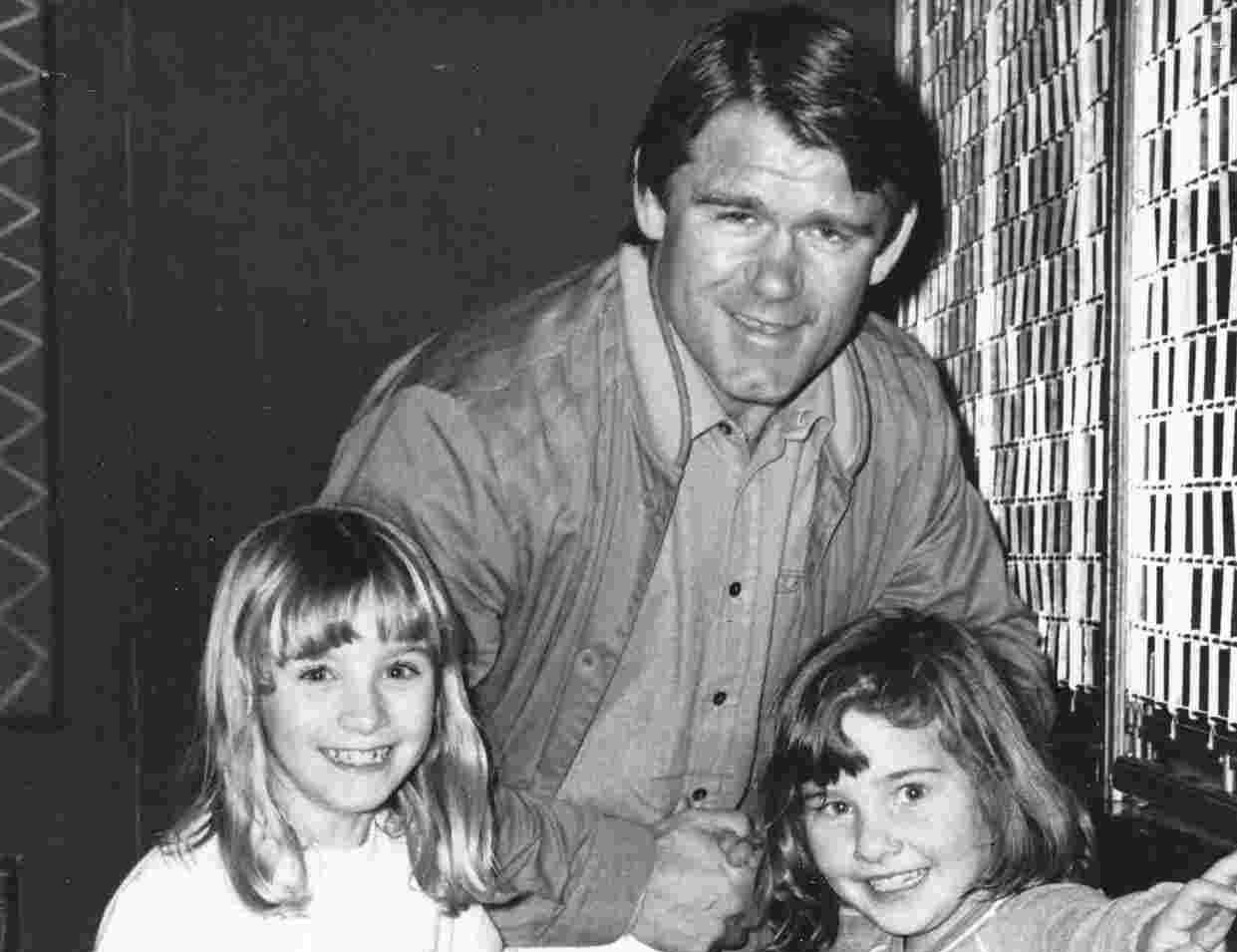
Manager David Webb had just led AFC Bournemouth to a famous promotion and was absolutely spitting feathers.
Webb was furious after Bobby Campbell’s dramatic late equaliser had denied the Cherries victory at Bradford City in May 1982.
Leading 2-1 thanks to goals from Andy Crawford and Howard Goddard, Tony Funnell’s attempt at a third goal was saved by Neil Ramsbottom.
The Bantams goalkeeper immediately launched the ball downfield and it eventually found its way to Campbell who rifled home the leveller.
A share of the points ensured both teams would go up but ended the Cherries’ chances of snatching the Division Four title with two games remaining. Suffice to say Webb was not a happy man.
Recalling the events from Valley Parade, Webb, speaking earlier this week to afcb.co.uk, said:
“Bradford was memorable but I nearly bashed the life out of Tony Funnell!
“I wanted to win the league and we were winning that game right up until the last minute.
“Their goalie had the ball and Tony should have blocked him off so he couldn’t kick it. But the fella just picked it up and kicked it.
“I was so upset after the game and slaughtered him but nobody could work out why. I stormed out of the dressing room. Everyone must have thought I was bonkers.
“I genuinely thought we had a chance of winning the title because there were only a few points between the top five and we had a couple of games left.
“I was so annoyed but I had a few beers later and calmed down.”

Appointed player-coach at Dean Court in May 1980, former Chelsea star Webb replaced Alec Stock as manager midway through the 1980/81 campaign after his predecessor became a director.
He guided the Cherries to the fringes of the Division Four promotion frame before four successive defeats in their final four games saw them finish 13th.
In the summer of 1981, Webb continued his squad rebuilding, with Keith Williams, Paul Edmunds and Phil Brignull joining the previous season’s recruits Nigel Spackman, Trevor Morgan, Paul Compton, Brian Smith, Chris Sulley and Kevin Dawtry, while Funnell, Andy Crawford, Eddie Kelly, Steve Carter and Milton Graham would follow.
It was the first season when three points for a win had been introduced and the Cherries hit the ground running by embarking on a nine-match unbeaten run, including six victories.
Webb said: “When I took over, there were a lot of players who were decent chaps but they were more journeymen.
“I said I was going to change the policy and start bringing in a lot of young players who could be sold but who were hungry. I brought them in and had to stick them all together like a bit of glue.
“Once you get that momentum, particularly in your first dozen games, it gives you that impetus and people come into work with a spring in their step.
“You had Ian Porterfield at Sheffield United, Roy McFarland at Bradford and Larry Lloyd at Wigan. We were all young managers who had been players so were all hungry to go forward. It was a good, competitive league and three points for a win made a hell of a difference.
“I always preferred to go for a win but built teams that could win 1-0 and we didn’t have to win 4-3.
“With all my teams, it was about team-work and making sure we were a hard side to beat and that’s what we had at Bournemouth. We were hard to beat but we had matchwinners as well.
“Tony Funnell could always score a goal and Trevor Morgan was a good battler and a good frontman so you always had a chance.
“The spine was good. Keith Williams was one of the brightest things because I struggled for that bit in midfield. I had Nigel Spackman who could run for England but I needed somebody in there who had a bit more nous.”
Webb recounted two fascinating tales surrounding the signings of Williams from Northampton Town and striker Funnell from Brentford.
He said: “A young lady wrote to me about giving her husband a trial and it was Keith Williams. He’d been player of the year at Northampton the previous season and had been let go.
“They had just had a baby and stayed in a tent near Weymouth so he could come in for a trial. I thought that was different class.
“He came in and I signed him straightaway. He was absolutely perfect. He said his knee was knackered but he was a terrific servant to the club.
“Tony Funnell was at Brentford and I went to see their manager Fred Callaghan and told him I would have him off them. I told him I would give him a choice. I said I would give him five grand or the car I had outside. The car was worth a bit more money but he said he couldn’t do that.
“The next day, I went to watch him play for their reserves at Aldershot. Sat behind me were Paul Went and Lenny Cheesewright from Leyton Orient and they wanted to sign him as well.
“Lenny told me they were going to go after him and sign him tomorrow but I’d already done a deal with Fred Callaghan.
“But I didn’t want to take a chance so I took Tony to my house, lifted my little girl out of her bed and I let him sleep there.
“The following morning, I took him straight to the ground and got him signed up. Apparently, Orient phoned in the afternoon to try to sign him but were told he’d already signed for us.”

The Cherries ended the season on the back of a 17-match unbeaten run, which they extended to 18 after winning the first game of the following season, and it remains a club record.
Webb added: “We had a togetherness in the team and the players righted things that were wrong between them.
“As a manager, sometimes you tweak things tactically or change a player’s position but the team was virtually the same.
“I had strong characters in the side like Tommy Heffernan and John Impey but there were good young players as well – Spackman, Brignull, Sulley and the young goalkeeper Ian Leigh.
“We had players who were initiated into senior football that season so to end up near the top was incredible really.
“Bournemouth was a terrific high for me and a very bad low. The year after when I really wanted to push for promotion again there was a rift between me and Harold Walker who was the chairman at the time.
“When I first started out as a player, I was given an opportunity against the odds at Leyton Orient, people gave me a chance.
“I had my initiation in management at Bournemouth and all those fellas who were thrown in at the deep end repaid me by doing very well.
“That was always one of the things I wanted to do and I proved it could be done because we got promotion.
“It was a hell of an achievement to do that with young players who had come from nowhere and been reserve team players at other clubs. To do it in their first season was a shining light for me and I was quite chuffed about that as much as getting the promotion.”




